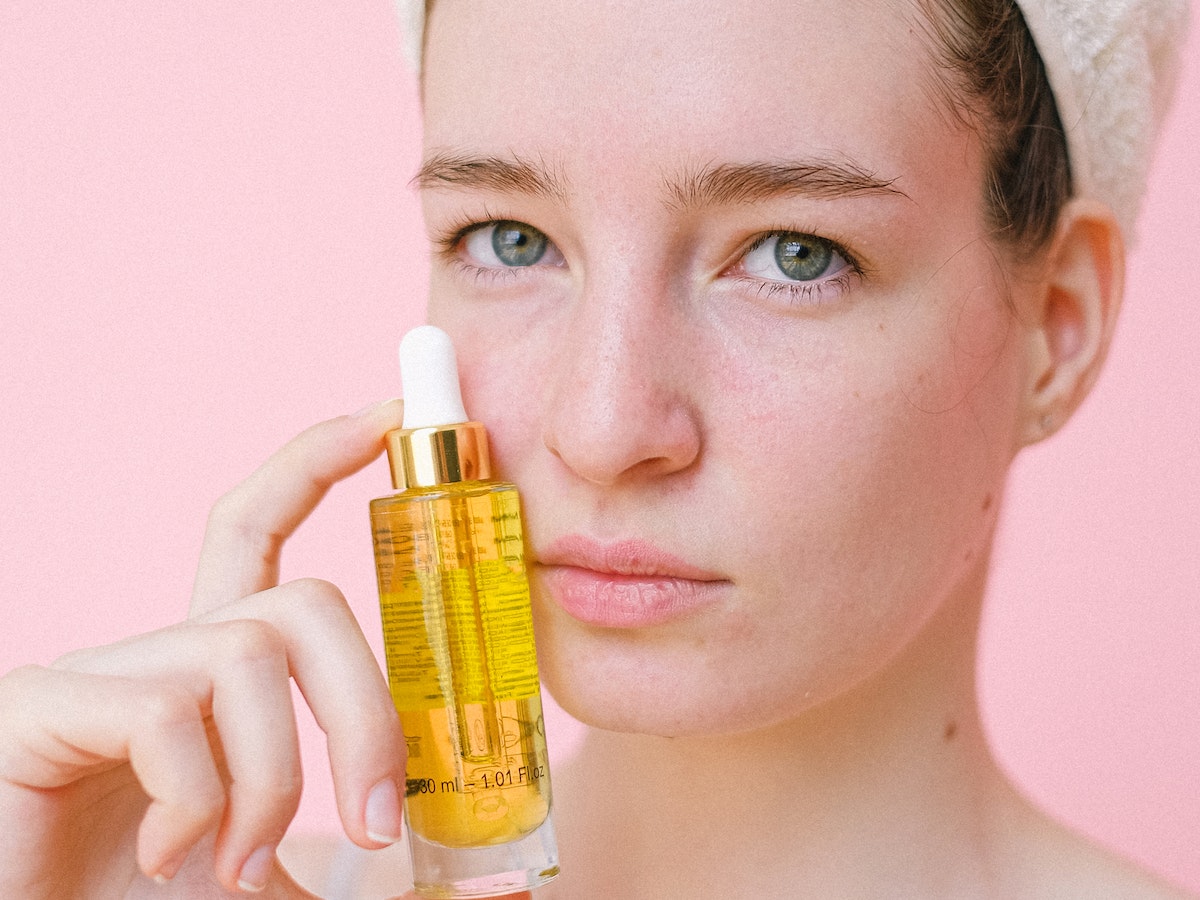Side Effects of Almond Oil on Your Face (Disadvantages & Solutions)
Are you a fan of natural beauty remedies? If so, you’ve probably heard of the many benefits of using almond oil on the face. This popular oil is known for its moisturizing and anti-aging properties, making it a go-to ingredient in many skincare products.
However, as with any beauty product, there can be unforeseen side effects of almond oil on the face that users may not be aware of. In this article, we’ll explore the potential side effects of using almond oil on your face and what you should be aware of before incorporating it into your skincare routine. From skin irritation to clogged pores, we’ll cover everything you need to know to make an informed decision about whether or not almond oil is right for you.
So, if you’re a fan of natural beauty remedies and want to learn more about the potential side effects of using almond oil on your face, keep reading!
Table of Contents
Types of Almond Oil
There are two main types of almond oil – sweet almond oil and bitter almond oil. The most common type of almond oil is sweet almond oil, which is safe for most people to use. Bitter almond oil is more potent, has relatively more side effects on face, and should be used with caution.
Sweet almond oil is extracted from the kernel of the almond fruit. The oil is then refined and typically used in cosmetics and skincare products. It’s also a popular ingredient in massage oils and aromatherapy. Sweet almond oil is safe for most people to use, although there’s a small risk of an allergic reaction.
Bitter almond oil is obtained from the bitter almond tree. This tree is native to Iran, India, and Pakistan. The oil from this tree is much more potent than sweet almond oil. It’s often used in flavoring and has a strong, bitter taste. Due to the risk of cyanide poisoning, bitter almond oil should be used with care.
Benefits of using Almond Oil on the Face
Almond oil is a completely natural oil that has been used for many years to maintain the health of both the skin and the hair. The oil comes from almonds, and it is full of vitamins A, B, and E, as well as important fatty acids. Almond oil’s natural emollient properties aid in its ability to maintain the skin’s natural elasticity and smoothness.
There are many benefits of using almond oil on the face. The oil has the potential to not only hydrate the skin but also to lessen the wrinkles on the face and other signs of aging. Almond oil is also known to be helpful in treating acne and other skin conditions.
When applied to the face, almond oil can help to reduce inflammation and redness. The oil is also gentle enough to be used on sensitive skin. Almond oil has been shown to have positive effects on the skin when used consistently.
There are a few things to keep in mind to avoid the side effects of almond oil on the face while using it regularly. First, it is important to choose an oil that is cold-pressed and organic. Second, To lock in moisture, the oil should be applied to damp skin. Third, it is important to massage the oil into the skin in a circular motion.
If you are interested in knowing more about the usage of almond oil for skin whitening click here.
Let’s go on a trip to understand the delicate balance needed to avoid the side effects of almond oil on the face when adding it to our skincare routines so that we can get healthy, glowing skin.

Potential Side Effects of Using Almond Oil on Face
Almond oil has been receiving a lot of praise recently since people have discovered all of the wonderful benefits that it can provide for facial care. It is essential, however, to be aware of the potential adverse effects that may be associated with the usage of the product.
The severity of these effects can change depending on a person’s particular skin type as well as their level of sensitivity. When used on the skin, almond oil is known to have a number of potential benefits, but it also has a number of potential disadvantages on face that you should be aware of.
1. Allergic Reactions to Almond Oil
Almond oil has a lovely smell because it comes from the noble almond, which is a tree nut. But it’s important to know that because almond oil comes from nuts, some people may be allergic to it if they put it on their face. There are many ways that allergic responses can show up, such as itching, redness, swelling, and the formation of hives.
In extreme cases, anaphylaxis, a life-threatening allergy reaction, can happen, requiring immediate medical help. Let’s get to the bottom of almond oil allergies and the side effects of almond oil that might happen so that your skincare journey stays safe and smooth.
2. Acne Breakouts from using Almond Oil on Face
Almond oil has a complicated nature that makes it important to pay attention to. Even though almond oil is known for its many benefits, it is important to know that it can be comedogenic, which means it can clog pores and cause acne.
This is especially important for people whose skin is oily or prone to acne. If you put almond oil on your face without being careful, it could make your acne worse or even cause new spots to appear.
3. Skin Irritation and Inflammation from using Almond Oil
Almond oil can cause skin discomfort and swelling in some people, especially those with sensitive skin. Some of the signs of these kinds of responses are redness, itching, and a tingling or burning feeling. When the problem is really bad, the skin’s reaction may lead to inflammation, which is shown by blisters.
How to Safely use Almond Oil on Your Face
There are a few precautions you may take to avoid the disadvantages of almond oil on your face if you decide to add it to your beauty routine.
- First, it’s important to do a patch test before using almond oil on your face. This involves applying a small amount of almond oil to a small patch of skin, such as the inside of your wrist, and waiting 24 hours to see if any allergic reaction or irritation occurs. If you do not experience any adverse reaction to the patch test, you can try using almond oil on your face.
- It’s important to use a high-quality, pure almond oil that does not contain any additives or preservatives.
- Almond oil can be used as a replacement for or in addition to your regular moisturizer or serum.
- When using almond oil on your face, it’s important to apply it in a thin layer and massage it into your skin gently. Avoid applying too much oil, as this can lead to clogged pores and acne breakouts.
- It’s also important to avoid using almond oil on open wounds or cuts, as this can cause further irritation.

Alternatives to Almond Oil for Facial Skincare
If you have experienced side effects from using almond oil on your face or are allergic to almonds, there are several alternatives that you can use instead. These include:
Jojoba oil: Jojoba oil is a natural oil with a similar composition to the skin’s sebum. It won’t clog pores and helps soothe irritated skin thanks to its anti-inflammatory effects.
Argan oil: Argan oil comes from the argan tree’s seeds. It has a lot of vitamin E and essential fatty acids, so it is often used in skincare items. Because it doesn’t clog pores and has anti-inflammatory effects, argan oil can help reduce redness and inflammation on the skin without causing breakouts.
Rosehip oil: Rosehip oil is a natural oil derived from the seeds of the rosehip plant. It has a lot of antioxidants and essential fatty acids, which makes it a famous ingredient in many skin care products. Because of its anti-inflammatory and comedogen-free qualities, rosehip oil can be used to calm irritated skin.
Conclusion
Overall, almond oil can be a beneficial addition to facial skincare routines, but it is important to be aware of the potential side effects of almond oil on the face. Anyone considering using almond oil on their face should perform a patch test to see if they experience any adverse reactions, such as redness, itching, swelling, hives, or acne breakouts.
If any of these occur, there are alternative facial oils available. It is also important to weigh the potential risks and benefits of using almond oil before making a decision based on your individual skin type and sensitivity. Knowledge and consideration are key when it comes to taking care of your skin’s well-being.
FAQs
No, almond oil does not make the skin darker. In fact, almond oil is often used as a natural skin lightener and brightener. It contains various vitamins and minerals that help improve the complexion and reduce the appearance of dark spots or blemishes on the face. Almond oil is also known for its moisturizing properties, which can help nourish the skin and give it a healthy glow.
Individuals with nut allergies or sensitivities should avoid using almond oil on their faces. Almond oil is derived from almonds, and if you have a known allergy to nuts, applying almond oil to the face can lead to side effects such as allergic reactions such as redness, itching, swelling, or even difficulty breathing. Additionally, people with acne-prone or oily skin should be cautious when using almond oil as it can potentially clog pores and exacerbate breakouts.
Yes, almond oil has the potential to clog pores, especially for individuals with oily or acne-prone skin. If used excessively or if someone’s skin is particularly sensitive, almond oil may lead to pore congestion, blackheads, or breakouts. It’s advisable to use almond oil sparingly on the face, perform a patch test before full application, and monitor how your skin responds to ensure it doesn’t cause any adverse reactions.
No, almond oil does not cause facial hair growth. There is no scientific evidence to suggest that almond oil promotes or stimulates facial hair growth. Almond oil is often used in skincare routines for its moisturizing properties and ability to nourish the skin. However, when it comes to hair growth, including facial hair, it is largely influenced by genetic and hormonal factors.
No, almond oil does not contain retinol. Retinol is a form of vitamin A that is commonly found in skincare products known for its anti-aging properties. Almond oil, on the other hand, is derived from almonds and primarily consists of fatty acids, vitamin E, and other nourishing compounds. While almond oil offers various benefits for the skin, such as moisturization and antioxidant protection, it does not contain retinol.
Disclaimer: This article is for educational purposes only, and does not substitute direct medical advice. Always consult a qualified healthcare professional for personalized advice before trying new treatments or medications.

General Physician
Senior Medical Writer






